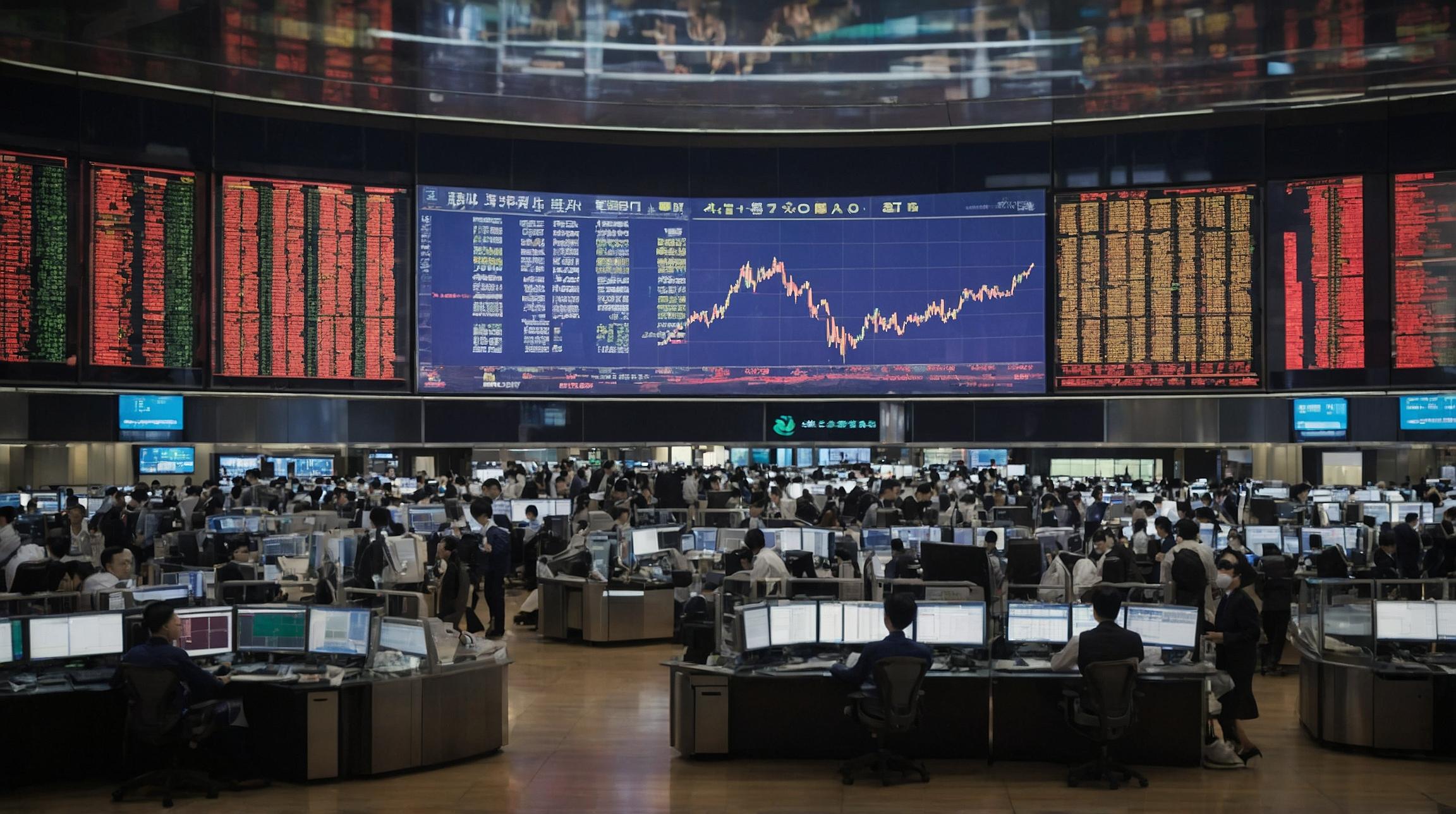Asian Stocks Fall Amid China-EU Trade Jitters; Inflation in Focus
Most Asian stocks fell on Monday due to worries about a potential trade war between China and the European Union (EU), and concerns over upcoming U.S. inflation data.
Regional Market Impact
Regional markets received mixed signals from Wall Street. On Friday, U.S. stock indexes dropped from their record highs due to a combination of profit-taking and fears about interest rates. During Asian trading, U.S. stock index futures showed very little movement.
Stronger-than-expected purchasing managers index (PMI) data from the U.S. raised concerns that the U.S. economy's strength might keep interest rates high for a longer time.
Chinese Stocks Down on EU Trade War Fears
Chinese stock indexes fell by 0.4% and 0.8%, and mainland stock losses dragged Hong Kong's index down by 1%.
Recently, the European Union imposed high tariffs on Chinese electric vehicles. This decision angered Beijing, leading to fears of a trade war. Chinese officials hinted at possible retaliatory tariffs on European cars.
Chinese stocks have been struggling for the past two weeks. Negative sentiment affected the broader Asian market too. Hong Kong's technology stocks were hit hard as well.
Weak data from China worsened the situation last week.
Other China-Exposed Markets Retreated
- Australia's stock index dropped by 0.6%.
- South Korea's stock index fell by 0.9%.
Japanese Stocks Rise Despite Yen Worries
Japanese stocks were somewhat positive, with both major indexes rising by 0.3%.
Japanese stocks were boosted by the weakened yen, which hit its lowest level against the dollar in over 30 years.
However, investors were cautious about potential currency market intervention by Tokyo, especially after key Japanese finance officials warned of such actions.
Broader Asian Market Movement
Broader Asian markets were mostly flat or slightly down, with eyes on the key U.S. inflation data expected this week. This data is the Federal Reserve's preferred measure of inflation and will come out this Friday.
Indian Market Outlook
India's stock index was predicted to open weakly. There has been significant profit-taking after it reached record highs earlier in June.
Glossary:
Trade war: When countries impose tariffs or taxes on each other's goods, leading to economic tension. For example, if China taxes European cars more, it could make European cars expensive in China.
Purchasing Managers Index (PMI): A measure of the economic health of the manufacturing sector. A high PMI suggests a strong economy. For example, if many factories are busy, the PMI will be high.
Currency market intervention: When a country’s government or central bank steps in to control its currency’s value. For example, Japan might buy or sell yen to keep its value stable.
Federal Reserve's preferred inflation gauge: The measure the U.S. Federal Reserve uses to check if prices are rising too quickly. If this data is high, they might raise interest rates.
With this information, you can understand why Asian markets are jittery over trade issues and possible inflation impacts.













